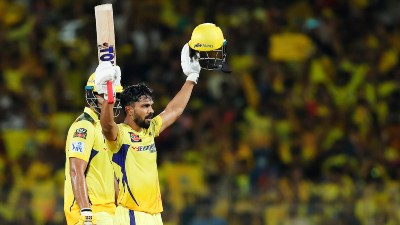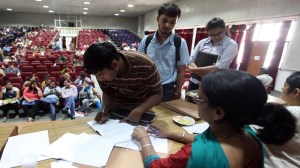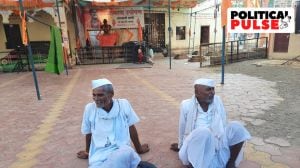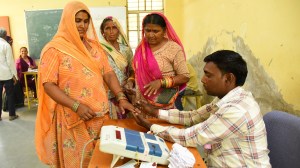- India
- International
Concern over dengue, malaria: BMC reserves 3,500 hospital beds ahead of monsoon
The BMC has also intensified vector-control activities since February, to remove articles that may store water and allow mosquito breeding.
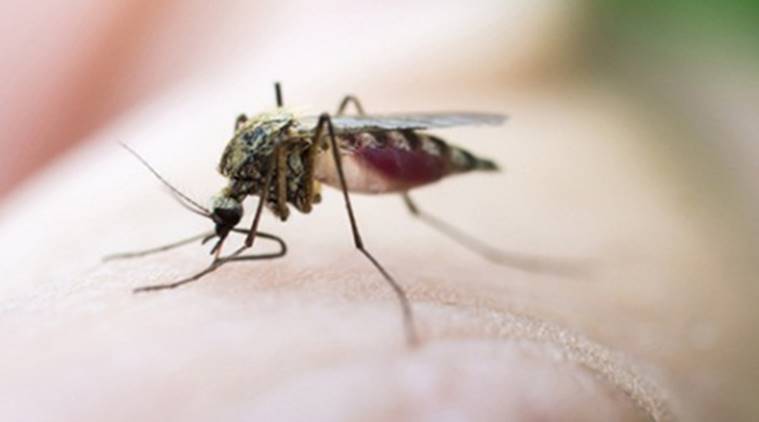 In 2017, the BMC recorded 1,134 dengue cases and 17 deaths due to the vector-borne disease caused by mosquitoes.
In 2017, the BMC recorded 1,134 dengue cases and 17 deaths due to the vector-borne disease caused by mosquitoes.
Ahead of the monsoon, the Brihanmumbai Municipal Corporation (BMC) has reserved 3,500 beds in all government hospitals across Mumbai to prepare for water-borne ailments and heavy patient admissions in the next four months.
Mosquito breeding and subsequent infection of dengue and malaria being major concerns, at least 360 additional insecticide officers will be posted by civic body from June 1, to detect mosquito breeding sites and destroy them.
“There are cases in which our officers find that breeding remains significantly high every year, despite creating routine awareness on how to prevent it in residential societies, corporate houses and slums. People need to proactively ensure that they do not allow water to stagnate during monsoon,” said insecticide officer Dr Rajan Naringrekar.
From January till now, a fine of Rs 37.44 lakh has been collected from residents and corporate houses that were found negligent in preventing mosquito breeding on their premises. Section 381(B) of Mumbai Municipal Corporation (MMC) Act prohibits mosquito breeding in collection of water on any land. The fine under the section ranges from Rs 2,000- 10,000. In total, the BMC has issued 3,620 notices and initiated prosecution in 158 cases under the section since January. Insecticide officers anticipate that mosquito breeding sites will double during monsoon.
In 2017, the BMC recorded 1,134 dengue cases and 17 deaths due to the vector-borne disease caused by mosquitoes. Even as malaria cases are steadily declining, with over 6,000 recorded last year, BMC health department is gearing to intensify its dengue-control mechanism by tracing each patient to his house and initiate screening of other family members.
Civic officials added that intensive contact tracing will be conducted not just for hospitalised dengue patients but also for those undergoing treatment at the out-patient department in government dispensaries and hospitals. “Our team will visit patient’s house to screen other family members and destroy mosquito breeding. It is often observed that dengue cases don’t come in isolation,” Dr Padmaja Keskar, executive health officer, BMC, said.
Following a recent ban on rapid diagnostic test kits by the central government, this year the civic authorities will switch to polymerase chain reaction (PCR) testing, available only at Kasturba hospital, to diagnose dengue.
Rapid tests kits, often used as primary testing for dengue, often yielded false results, forcing the government to prohibit its use. In BMC hospitals, a patient who tested positive for dengue in rapid test would further had to undergo PCR test for confirmation. From now, BMC will only use PCR test as final test for dengue, which is estimated to significantly increase work load on the lone diagnostic laboratory in Mumbai.

“We are not expanding PCR tests to other centres as of now. Kasturba hospital can alone manage the city load,” Keskar added. Training for medical and paramedical staff has also begun to identify symptoms of dengue. The BMC has also intensified vector-control activities since February, to remove articles that may store water and allow mosquito breeding.
Apr 24: Latest News
- 01
- 02
- 03
- 04
- 05











